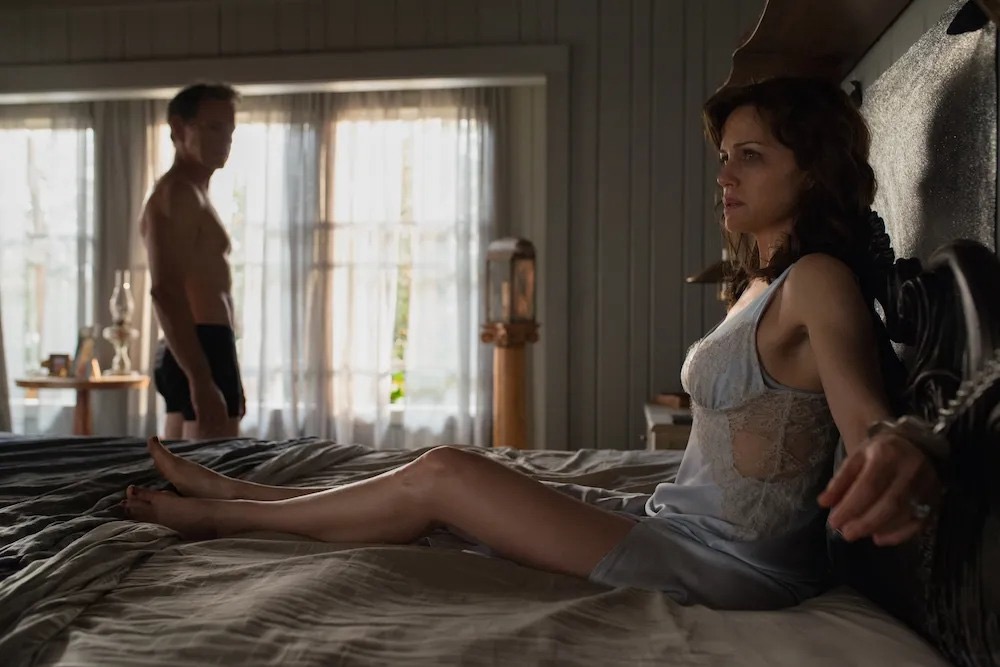Gerald’s Game (2017)

Gerald’s Game (2017), directed by Mike Flanagan, is a tense and psychological horror-thriller adapted from Stephen King’s 1992 novel of the same name. The story revolves around Jessie (played by Carla Gugino), who is left handcuffed to a bed in a remote cabin after a sexual game with her husband, Gerald (Bruce Greenwood), takes a tragic turn when he dies of a heart attack. Alone and trapped, Jessie must confront her inner demons, repressed memories, and find a way to survive as time ticks by.
Here’s a breakdown of key elements:
Performances:
Carla Gugino’s performance is nothing short of stellar. The movie largely rests on her shoulders, given the isolated, confined setting. Her portrayal of Jessie, going from fear to empowerment, is raw and deeply emotional. Bruce Greenwood, though playing a more limited role as Gerald, adds depth as his character continues to haunt Jessie through hallucinations. Their chemistry sets up the psychological tension right from the beginning.
Direction & Atmosphere:
Mike Flanagan, known for his skillful handling of tension in horror films (Hush, The Haunting of Hill House), does a remarkable job translating a largely internal, psychological novel into a visual experience. The claustrophobic setting of the bedroom becomes a crucible for Jessie’s mental struggle, and Flanagan’s direction emphasizes the isolation, both physically and mentally. The film is visually unsettling, using tight shots to increase the sense of entrapment, and occasionally shocking the audience with moments of visceral horror.
Themes:
The movie delves deeply into themes of trauma, particularly childhood abuse, power dynamics in relationships, and survival. Jessie’s mental journey through her memories, including confronting a disturbing childhood event, is where the emotional heft of the movie lies. The film explores how past traumas continue to exert control over people, much like the physical handcuffs keeping Jessie trapped.
Tension & Horror:
While Gerald’s Game is often categorized as a horror film, much of the tension comes from psychological and emotional struggles rather than supernatural or slasher elements. The true horror lies in Jessie’s predicament and the gradual unraveling of her mental state as she deals with thirst, hunger, and hallucinations. However, there are some traditional horror moments, such as the eerie presence of the “Moonlight Man,” a shadowy figure that may or may not be real. His inclusion adds a layer of ambiguity and dread.
Flaws:
The ending is often cited as divisive. Like the novel, the film shifts its tone in the final act when certain mysteries are explained, leading to a resolution that feels somewhat jarring compared to the psychological buildup. Some viewers may find this shift unsatisfying, as it veers from the intense psychological stakes to a more conventional wrap-up.
Conclusion:
Gerald’s Game is a smart, gripping psychological horror that pushes its lead character to emotional and physical extremes. It’s a faithful and well-executed adaptation of King’s novel, showcasing strong performances (especially Gugino’s) and a thought-provoking exploration of trauma. Though the ending may not satisfy all viewers, the journey there is intense, harrowing, and deeply unsettling.











